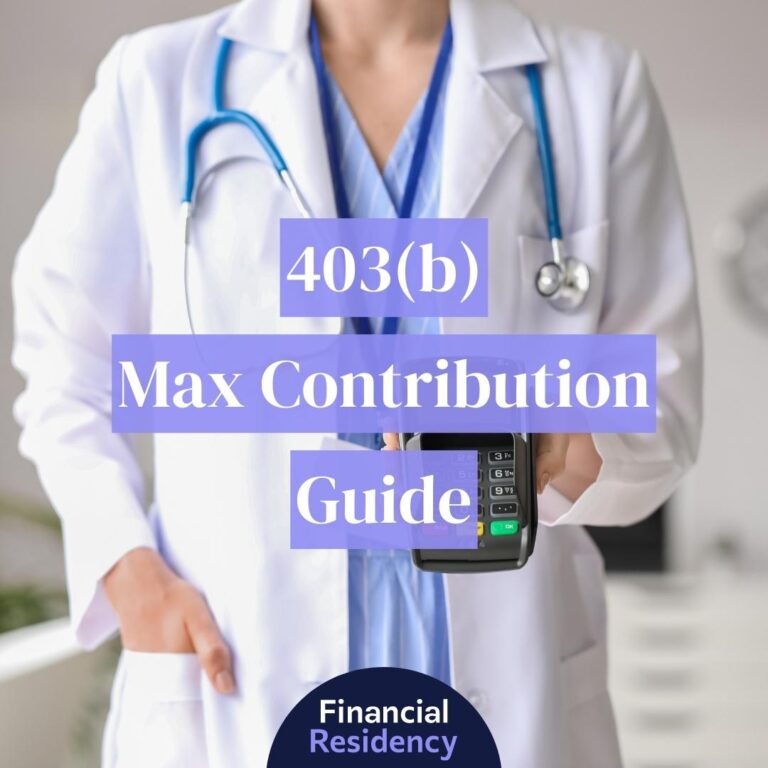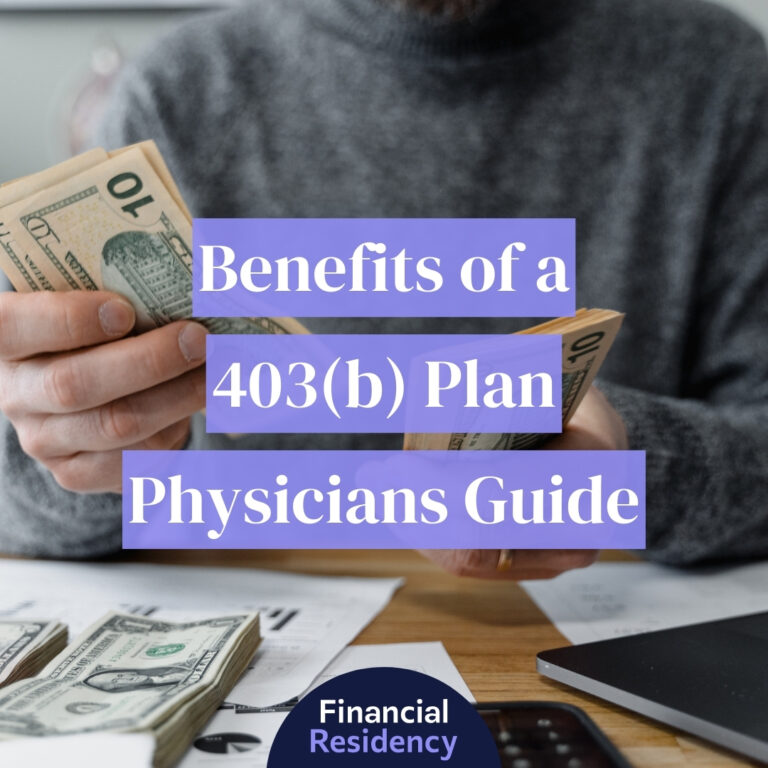You probably assume you need a lot of money to retire if you’re a doctor, which may be true. But it’s not the case for all doctors. The amount you need depends on several factors. Here’s what you need to know.
How Much Money Should Doctors Retire With?
If you want to know exactly how much doctors need to retire, the problem is that it’s not a one-size-fits-all solution. What one doctor needs to retire might be more or less than another.
Many factors affect how much you need to retire, whether you’re a doctor, an accountant, or a factory worker.
Some of the most common factors for consideration include the following:
- Your current lifestyle
- Your intended lifestyle in retirement
- How long do you plan to be retired
- How long do you have to save to reach your retirement goals
Doctors often live more extravagant lifestyles than blue-collar workers because they make more, but it depends on your lifestyle.
If you live a frugal lifestyle, for example, you may not need as much to retire as a doctor who plans to travel the world once retired.
When Doctors Should Start Saving for Retirement
The simple answer regarding when doctors should start saving for retirement is the sooner, the better. Ideally, you have already begun to, but if you didn’t, the right time is now.
Why is it so important to save early?
Compounded Earnings
It’s called compounded earnings. Without them, you’ll have to save much more money monthly to achieve the same goals.
For example, assume you want to save $5 million for retirement, with an average 10% return, as that’s the average stock market return over the last 50 years.
If you start saving at age 30, you’d need $1,537 invested per month. But, if you waited until age 40, you’d need to save $4,237 per month! That’s a tremendous difference.
Now, if you started at 20, you’d only need to save $580 a month, and you’d have $5 million at age 65.
As you can see, you should start saving now if you haven’t already.
How Much to Save Monthly
How much you should save monthly depends on your retirement goals. But, again, if you start early, you won’t have to put as much in your retirement account monthly as you would if you waited.
It also depends on when you want to retire. The average physician claims to want to retire at 60, but most retire at age 69.
Ideally, aim to save 15% to 20% of your income if you start early. If you wait, you’ll need to catch up and likely save much more.
If you’re still in your residency or fellowship, your contributions will be much less than when you’re an attending physician. The key is to increase your contributions as your income increases.
At the very least, during your fellowship and residency, get the employer match if your employer offers it in your 403b (it’s not common), and maximize your IRA contributions.
As your income increases, continue increasing your contributions to meet your retirement goals.
Is $10 Million Necessary to Retire?
Rumors are flying around that physicians need $10 million to retire. But it is just that – a rumor.
Most physicians don’t come close to having $10 million when they retire, no matter how much money they make.
Some doctors retire with different net worths ranging from $1 million to $5+ million. Again, it depends on your goals, when and how much you save, and how you invest your money.
No matter their lifestyle, $10 million isn’t required for anyone to retire.
Calculating Your Retirement
Calculating how much you need in retirement feels like looking into a crystal ball, but there are some factors you can use to help you decide.
Spending Calculations
First, consider your spending needs. It’s best to use your spending now to gauge how much you’ll spend in retirement.
Still, you should consider the following:
- Any mortgages you pay now that will be paid off before you retire don’t need to be included.
- Student loans you pay now that will be paid off before you retire don’t need to be included.
- Will your kids be grown and out of the house? Your living expenses will likely decrease.
- Will you downsize your house or move to a more affordable area? This will lower your costs.
Also, consider the money you’ll save on professional clothing, commuting, and various insurance policies.
Next, consider expenses that might increase in retirement, including the following:
- Healthcare
- Travel expenses
- Helping with grandchildren
- Sending children off to college
Choosing a Safe Withdrawl Rate
Your withdrawal rate dramatically affects how much you need for retirement. The more you withdraw each year, the more money you save for a happy retirement. Most physicians retire with a 3% to 5% withdrawal rate.
Here’s what to consider:
- Will you change your spending habits if there’s an economic downturn? If the answer is no, you are better off with a 4% to 5% withdrawal rate than a more conservative rate.
- Will you retire in more or less than 30 years? The younger you are when you retire, the more conservative your withdrawal rate should be. This ensures you’ll have enough money available for the rest of your life.
- Will you invest conservatively or aggressively? The more aggressively you invest, the higher your withdrawal rate can be, and vice versa. If you have a low risk tolerance, your portfolio won’t grow as fast, but it will be steady and available in retirement. You just need to use caution when withdrawing from it.
- Do you have other income sources? If you have other income sources, like Social Security or a pension, you can have a higher withdrawal rate because you have other sources of income.
Steps Toward Retirement
As you determine how much to save for retirement, consider these steps to help you reach your goals.
A Lifestyle Examination
First, consider your lifestyle. What will remain the same, and what might change? Some people keep their lives identical (except for working) in retirement. Others drastically change how they live.
Think about what you must have in your life and what might change. For example, you might love your house, no matter how big it is and how much room you have to downsize. That’s a non-negotiable for you, and its upkeep should be figured into your expenses.
Next, consider what expenses might disappear.
As we discussed above, your kids will likely be grown, and out of the house, so there are likely many expenses you’ll save in your retirement years.
If you aren’t sure how much you spend annually, pull your bank and credit card statements and get a good idea.
Determine Needs of Anticipated Retirement
After examining your lifestyle, consider your anticipated retirement expenses, especially those that will increase your costs.
Healthcare is usually the largest concern. The average retiree spends $315,000 in healthcare throughout retirement. That could be as much as $10,000 per year, depending on how long you’re retired and your overall health.
Of course, there may be other added expenses. For example, if you dream of traveling the world or living another lifestyle you aren’t accustomed to, you’ll need the income to cover it.
Retirement Length and Life Expectancy
The longer you are retired, the more money you’ll need. If you’re like the average doctor and retire at 69, you’ll need 20 to 30 years of living expenses. But, if you’re an outlier and retire early, you’ll need more.
Of course, no one knows how long they’ll live, but let’s look at the glass half full and assume you’ll live to 100 years old. If you have too much, it will go to your estate, but that’s a lot better than outliving your funds.
Retirement Risk Tolerance
Think about what will make you sleep better at night regarding your retirement income. Will you lose sleep unless you know you have 100% of the funds needed, no matter how long you live?
If so, you have a low-risk tolerance. In other words, consider a lower withdrawal rate. You’ll make your money last longer no matter how long you live and won’t have too many worries.
But, if you aren’t worried about your retirement fund balance or can adjust your spending to make your money last longer, you have a higher risk tolerance. This allows you a higher withdrawal rate to enjoy life to the fullest.
Passive Income Forms
Your retirement accounts aren’t the only source of income allowed during retirement.
If you can set up passive forms of income, you’ll increase your chances of a successful retirement.
Consider things like:
- Real estate investments
- Crowdfunded real estate
- Investments in digital products that produce passive income
- Commercial property investments
- Pensions
- Social Security income
Creating Retirement Goals
Finally, create your retirement goals. What do you want out of retirement? That will help you determine how much you need.
Put aside the living expenses, withdrawal rates, and supplemental income, and look at what you want from retirement. Do you want to live on a remote island with a drink in your hand daily or live close to family and downsize, living comfortably but not extravagantly?
You’ve worked hard to create the life you have in retirement, and you deserve to enjoy every second of it.
Distance From Retirement
A major factor you must consider when determining how much you need to retire is the time between now and when you retire.
If you’re retiring soon, you’ll need less money because there’s less time between now and retirement than if you just graduated med school.
The reason is inflation. The longer the time between now and when you retire, the more time there is for inflation to take effect. To determine how inflation affects your retirement goals, use the Rule of 72.
This rule determines how long it takes for money to double. If inflation rates are low, say 2%, then in 36 years, you’d need double the amount of money for retirement. For example, if you needed $1 million, you’d need $2 million in 36 years.
The higher the inflation rates are, the sooner you’d need more money. Today’s inflation rate of 6%, for example, only gives you 12 years before you’d need to increase your retirement savings.
The Good News About Retirement
Right now, it probably feels like saving for retirement is a chore that will burden you for many years, but there’s good news!
First, you don’t have to replace your pre-retirement income. Your annual income during retirement can be drastically less than your income while you work if your expenses decrease.
Most people have much lower bills in retirement, especially if they plan accordingly.
Second, you may have more than just your retirement account to rely on for retirement income. For example, having Social Security, a pension, or passive income can reduce the amount you need from retirement savings.
The Bad News About Retirement
Of course, there’s always bad news.
No matter how much you earn in retirement, you can’t spend that amount. For example, if you have a 10% return on your investments, you can’t spend 10% in a year and think you’ll be okay. You have to consider the years you didn’t have a 10% return or had a loss.
The key is to find a withdrawal rate that allows your retirement income to last, usually 3% to 5%, but everyone differs.
Top Accounts for Doctors to Save for Retirement
If you haven’t saved for retirement yet, here are the top accounts to consider:r
- Max your 401k or 403b contributions.
- Open a Roth IRA or a traditional IRA and use the back-door Roth method, which means converting your traditional IRA to a Roth IRA after contributing to it.
- Consider a taxable account for any extra funds you can save for retirement after maxing out your tax-advantaged accounts.
- Open and fund a Health Savings Account to have tax-free money for healthcare.
Frequently Asked Questions
Saving for retirement can seem intimidating, no matter how much money you make. So here are some top questions people have.
What is the average net worth of a doctor?
Over half of the physicians in the US are worth over $1 million; about a quarter are worth $2 million, and just over 10% are worth over $5 million.
Do doctors receive social security when they retire?
Yes, doctors receive Social Security when they retire. Doctors who wait until age 65 to collect can continue working part-time and not hurt their Social Security income.
Do doctors have pensions?
Most doctors don’t have pensions today. So no doctor should rely on a pension and instead focus on their tax-advantaged retirement account options.
What is the average retirement age of a doctor?
The average doctor retires at age 69, much older than most anticipate when they start in the field.
Why is it difficult for a doctor to retire?
Doctors identify with their profession since it’s a job that requires a lot of dedication and passion. Many become attached to their profession and don’t know any other lifestyle, so they are afraid to leave it. Others have created a lifestyle that prevents them from retiring because they’re used to the higher income.
So, How Much Money Do Doctors Retire With?
Every doctor needs a different amount to retire. When determining how much you need for retirement, the key is to look at all the factors, including inflation. Don’t use any ‘rule of thumb’ figures. Instead, figure out what you’ll need in retirement and start saving to reach your goals.




